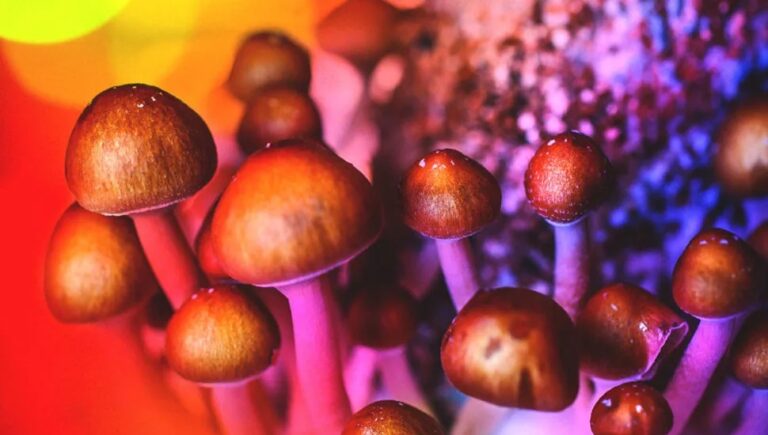Psilocybin has long been discussed as a potentially positive psychedelic in the treatment of mental health, and a team of researchers at Monash University is hoping to confirm it in a clinical trial.
In recent years, studies have noted the positive effects of the active ingredient in magic mushrooms in helping the terminally ill cope with the idea of death and cancer patients reduce their end-of-life anxiety.
The recent increase in interest in the use of psychedelics in therapy has been backed by experts but a clinical trial studying the efficacy of psilocybin in treating a primary anxiety disorder has never been done.
Until now. As reported by VICE, a team of researchers at Melbourne’s Monash University last month became the first in the world to be given ethics approval for the clinical study of psilocybin as a treatment for Generalised Anxiety Disorder (GAD). A severe form of anxiety, it involves chronic worry and fear that happens on a day-to-day basis for at least six months.
While previous focus has been on the use of psilocybin for terminal patients, Paul Liknaitzky, head go clinical psychedelic research at Monash, explained that this will be the first trial focusing on anxiety that is “chronic, entrenches and generalised.”
The clinical trial will take place at the university’s ‘Brain Park’ facility, a neuroscience research clinic complete with a meditation room and consultation suites. The patients will first be given a 25mg dose of psilocybin before being administered an even higher dose in a second session; each session will be preceded and followed by at least three psychotherapy sessions with two qualified therapists.
“The treatment duration is only seven weeks but participants’ involvement in the trial is about six months, with assessments before, during and after the treatment phase,” Liknaitzky told VICE.
According to him, trust between the patient and therapists will be vital, which is why the clinical trial has also secured the world-first approval for something fascinating: providing psilocybin not only to the patients but also to their therapists.
“While this was commonplace for psychedelic therapists using LSD during the first wave of psychedelic research in the 50s and 60s, this is the first trial ever to offer psilocybin as a training tool for therapists, and the first to offer a classical psychedelic for this purpose since 1974,” he said.
“When you’re dealing with the crucial element of trust in this treatment approach, an affirmative response from your clinical support team – ‘yes, I’ve been there before, it was challenging but I survived and benefitted, and I can help you’ – that helps an enormous amount with the participants’ trust.”
Liknaitzky offered an interesting metaphor as explanation: “if you’re about to be rocketed to a new planet with an alien landscape that is completely different to anything you’ve ever encountered before, and it’s likely to be challenging, you’ll probably want “the safety and confidence of someone who’s been there before. Or at least someone who’s been somewhere similar.”
The clinical trial hopes to start recruiting patients for the study in early 2022, with 72 participants expected to take part.
For more on this topic, follow the Health & Wellness Observer.


































